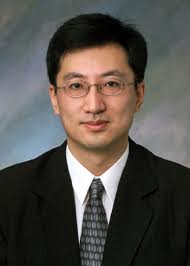
Abstract
Despite the incredible market penetration of smartphones and exponential growth of the app market, utility of smartphones has been and will remain severely limited by the battery life. As such, energy has increasingly become the scarcest resource on smartphones which critically affects user experience. In this talk, I will start with a first study that characterizes smartphone energy bugs, or ebugs, broadly defined as an error in the smartphone system (apps, framework, OS, hardware) that results in unexpected smartphone battery drainage and leads to significant user frustration.
As a first step towards taming ebugs, we built the first fine-grained energy profiler, eprof, that performs energy accounting and hence enables energy-efficient app development by answering the very question "where was the energy spent inside the app?". Building eprof in turn requires a fine-grained, online power model which we have developed that captures the unique asynchronous power behavior of modern smartphones, which defies the power models developed in the past decade. Using eprof, we dissected the energy drain of some of the most popular apps in Google Play and discovered ebugs in popular apps like Facebook.
While essential, eprof only provides a semi-automatic tool for energy debugging, as the developer has to be involved in the iterative profiling/debugging process. The “holy grail” in energy debugging in smartphones is to develop fully automatic debugging techniques and tools. Time permitting, I will articulate the fate of energy bugs in smartphone apps and OSes as a consequence of adopting aggressive sleeping policies and exposing explicit power control APIs to the developers, and highlight several automatic ebug detection systems we have developed so far.
Biography
Y. Charlie Hu is a Professor of Electrical and Computer Engineering and Computer Science (by courtesy) and a University Faculty Scholar at Purdue University. He received his Ph.D. in Computer Science from Harvard in 1997, and was a research scientist at Rice University and a co-founder of the iMimic Networking, Inc. before joining Purdue in 2002. His research interests lie broadly in distributed systems, operating systems, computer networking, and wireless networking. Charlie received the NSF CAREER Award in 2003 and the 2009 Early Career Research Award from Purdue College of Engineering, was named an ACM Distinguished Member in 2010, and is a co-recipient of EuroSys 2012 Best Student Paper Award.